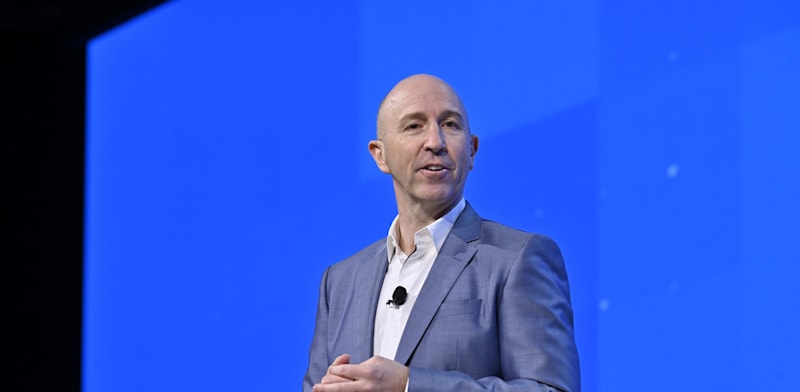Investors were disappointed by the investor conference held yesterday by technology company Nice (TASE: NICE; Nasdaq: NICE), and the company’s share price plunged 9.4% on Nasdaq yesterday on a large volume. The stock is down about 16% in today’s session in Tel Aviv so far, and is weighing on the main indices.
Nice is currently traded at a five and a half year low. The last time its stock was at its current level was at the beginning of the Covid pandemic in March 2020. The company now has a market cap of about $7.5 billion, which compares with a peak of $20 billion at the end of 2021. In 2022 it was the highest valued Israel company on Wall Street; today it is not even in the top ten.
Nice, headed by Scott Russell, provides customer relations management and risk management solutions. It recently completed its biggest ever acquisition, buying German company Cognigy, which deals in AI in customer experience management, for $955 million. In the wake of the acquisition, Nice slightly reduced its annual profit guidance, and slightly raised its revenue guidance, in the financials it released last week.
At the investor conference yesterday, Nice presented its vision and the opportunities it has identified. Russell spoke of a large market opportunity in its CX AI platform. In its presentation, Nice stated that brands that invest in the customer experience perform better than their competitors, including in customer retention and cost reduction. Nice adds that there is still a need for human representatives in customer service, but that they are assisted by AI agents that carry out the less complicated interactions. Russell said that Nice was in a leading position in the market with revenue of $3 billion this year and free cash flow of $692 million in the past twelve months, and that it addressed a market that would grow and expand with the aid of AI from $31 billion this year to $72 billion in 2028.
Nice has set itself a target of $3.5 billion revenue from the cloud in 2028, which compares with a forecast of $2.2 billion for this year. In its conference presentation the company also stated its expected investment in the coming years in boosting sales growth. The additional expenditure in 2026 will be $95 million on cloud and AI and accelerating R&D, and a further $65 million on go to market. This will cut 200 basis points from the gross margin in 2026, but should contribute to improvement later on. This year, Nice expects revenue growth of 7-8%, but by 2028 growth is meant to reach 12-13%, with growth in the company’s cloud business rising from 12-13% to 17-19%. The operating profit margin will fall from 31% to 26-28%.
What the analysts say
RELATED ARTICLES
Will Nice’s mega acquisition pay off?
Oppenheimer Israel senior analyst Sergey Vastchenok says that Nice’s management has identified five growth engines: AI, which will grow to revenue of $1 billion by 2028; continued migration of call centers to the cloud; global expansion; and collaborations and expansion beyond call centers. “Despite the optimism, investors took the forecast hard,” Vastchenok says. “Investors, as is well known, don’t like declines in profit margins and a lack of operating leverage, which raise fears of competition.”
Two analysts who cover Nice with neutral ratings have cut their price targets for the stock. At Jefferies, the recommendation is “Hold”, and analyst Samad Samana has cut his price target from $152 to $136, representing a premium of 13%. He says that reaching cloud revenue of $3.5 billion in 2028 will justify the investments, but that accelerating revenue will not be easy.
Cantor Fitzgerald analyst Thomas Blakey has lowered his price target for Nice from $154 to $133, a premium of 10%. Blakey sees Nice’s plan as fairly aggressive and as positive for the long term, but adds that he is aware of the execution risk and the likelihood that some investors will choose to wait before investing in the stock.
Uzi Levi, head of foreign equity research at Mizrahi Tefahot Bank, thinks that Nice’s business basis remains strong and stable. He says that Nice’s choice of investing in AI sends a clear message to the market: the company prefers to build growth engines for the coming decade even at the price of a temporary drop in profit margins. “A move like that is sometimes perceived as negative in the short term, but for investors with broad horizons it’s actually a sign of strength and strategic confidence. The company operates in rapidly developing markets, particularly cloud solutions and smart automation, and so the ability to be ahead of the curve though aggressive investment represents a significant competitive advantage,” Levi says.
Published by Globes, Israel business news – en.globes.co.il – on November 18, 2025.
© Copyright of Globes Publisher Itonut (1983) Ltd., 2025.


























